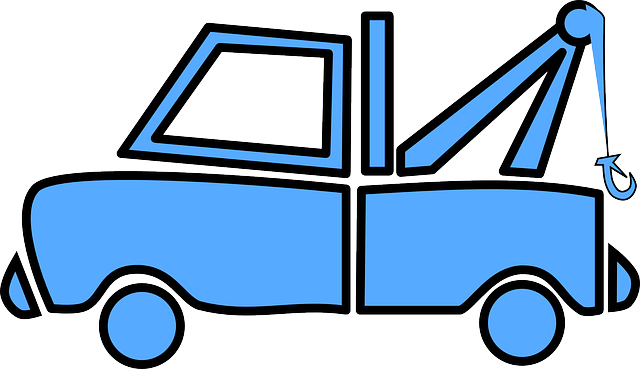RVing is a popular way to explore the great outdoors and experience the freedom of the open road. However, one crucial aspect that is often overlooked by RV enthusiasts is the importance of proper weight distribution and the dangers of overloaded vehicles. In this blog post, we delve into the world of RV weight distribution and overloaded vehicles, discussing the impact they have on RV accidents, preventive measures, and the legal consequences. So, buckle up and let’s uncover the vital role weight distribution plays in the safety and longevity of your RV adventures, as we answer the question: how often do RV accidents occur due to issues related to weight distribution or overloaded vehicles?
Key Takeaways
- Weight distribution is a critical factor for RV safety, as improper weight distribution can lead to accidents.
- Regularly weighing your RV and maintaining it are essential to ensure proper weight distribution and reduce the risk of weight-related accidents.
- Understanding potential legal consequences, insurance implications, case studies & lessons learned can help drivers take necessary precautions to avoid overloaded vehicles & reduce accident risks.
The Impact of Weight Distribution on RV Accidents

Weight distribution is a significant factor in RV accidents, as it can influence the vehicle’s lifespan, prevent premature component damage, and facilitate safer driving on various types of roads. Indeed, adhering to weight ratings is crucial to prevent the RV from being overloaded and to ensure safe operation by observing the weight limit.
Keep in mind, overloading an RV or having poor weight distribution has severe consequences, potentially leading to total vehicle loss and posing a threat to other road users. Adding too much weight is commonly attributed to RVers not getting weighed and installing aftermarket accessories without consideration, among other factors. This can lead to imbalanced rear axle weights, causing instability and increasing the risk of accidents.
A clear understanding of weight ratings, overloading dangers, and common causes of poor weight distribution empowers RV drivers to take necessary precautions for safe travel.
The Role of Weight Ratings
Weight ratings are numerical values that indicate the maximum weight an RV can safely accommodate. When matching a tow vehicle and trailer, it is essential to consider various weight ratings such as RV weight, which includes:
- Unloaded Vehicle Weight (UVW)
- Gross Vehicle Weight Rating (GVWR)
- Gross Axle Weight Rating (GAWR)
- Gross Combined Weight Rating (GCWR)
- Gross Weight
These ratings not only ensure proper weight distribution but also prevent overloading, reducing the risk of an RV accident.
For accurate measurement of your RV’s weight, consider using weigh stations to obtain precise measurements by wheel position. Additionally, it is crucial to take into account the following:
- Fuel and water tanks, as well as the LP-gas cylinders, should be completely filled.
- Assess both the truck and the trailer individually.
- Ensure that the weight is evenly distributed across all wheel positions.
These steps are vital for safe RV operation.
If weight ratings are exceeded, reducing cargo or adjusting its placement becomes necessary until the weight-rating values are met.
Dangers of Overloading an RV
An overloaded RV can pose several risks, such as:
- Excessive component wear
- Tire blowouts
- Brake failure
- Loss of vehicle control that could result in crashes
Accidents involving fifth wheels and travel trailers can be particularly hazardous due to the combination of a tow vehicle and a large, heavy trailer, which can multiply the damage compared to an accident involving only a car.
Overloading an RV can have detrimental effects on its handling and maneuverability, such as tire failure, poor handling, and inadequate braking power. Furthermore, overloading can cause excessive wear to the suspension and frame, thereby diminishing the handling characteristics. Consequently, it is of utmost importance to evenly distribute the weight and avoid overloading in order to ensure passenger safety and optimal performance of the RV.
Common Causes of Poor Weight Distribution
Potential causes of inadequate weight distribution in recreational vehicles may include improper loading, unbalanced cargo, and exceeding weight ratings. These factors can adversely impact vehicle stability and handling, thus increasing the risk of accidents.
Hazardous driving practices that can result in RV collisions include excessive speed, abrupt turning, and inadequate following distance from the vehicle ahead. Observing a speed limit of 65mph or less when driving an RV is critical, as many RV tires are not designed to handle higher speeds, thus posing a hazard.
Addressing the typical causes of poor weight distribution and practicing safe driving can significantly lower the risk of accidents related to weight distribution or overloaded vehicles for RV drivers.
How RV Drivers Can Prevent Weight-Related Accidents

Weight-related RV accidents can lead to extensive damage to the RV, other vehicles, and property, as well as potential injury or fatality to the occupants of the RV and other vehicles. In order to prevent such accidents, RV drivers should regularly weigh their RV, maintain their vehicle, and invest in safety equipment. Additionally, if feeling drowsy while driving an RV, it is advisable to find a rest area to take a nap or get out and move around.
By taking these preventive measures, RV drivers can significantly reduce the risk of weight-related accidents. Not only do these actions ensure the safety of the RV driver and passengers, but they also contribute to safer roads for other drivers sharing the highways with recreational vehicles.
Regularly Weigh Your RV
Regularly weighing the RV ensures it’s not overloaded and that the weight is appropriately distributed. This assists in avoiding accidents due to inadequate weight distribution or overloaded vehicles. Weighing the RV by wheel position is the most effective approach, and it is recommended to use weigh stations to get accurate measurements.
It is advisable to weigh your RV at least twice annually or more often if you are adding much weight to the RV or performing a significant decluttering. Regular weight checks and proper weight distribution of your RV can significantly lower the risk of weight-related accidents, thereby ensuring safe and long-lasting RV adventures.
Maintain Your Vehicle
Maintaining your vehicle appropriately is key to preventing RV accidents and ensuring safe, smooth operation. Regular maintenance includes checking tire pressure and condition, which can have a significant effect on the weight distribution of an RV. Running rear tires at lower than the recommended pressure can lead to uneven weight distribution, resulting in overloading of certain tires, reduced traction, decreased fuel economy, and potential damage to the tires.
Adopting a proper vehicle maintenance routine can help to ensure the prevention of weight-related RV accidents. Regular maintenance checks and inspections will:
- Identify and resolve potential issues before they become more serious
- Avoid costly repairs
- Ensure all components are in good working order
- Extend the life of the RV
- Reduce the risk of breakdowns or malfunctions while traveling.
Invest in Safety Equipment
Investing in safety equipment can help minimize the possibility of weight-related accidents, enhance visibility, and offer improved control of the RV. Some recommended RV safety devices and equipment include:
- Tire pressure monitoring systems
- Backup cameras
- Fire extinguishers
- First aid kits
- Towing safety products and accessories
- Wheel chocks and leveling blocks for RVs and campers
- Roadside safety gear for breakdowns and accidents
By equipping your RV with these safety measures, you can make sure to ensure a safer and more enjoyable travel experience.
Investments in safety equipment not only ensures the safety of RV drivers and their passengers but also contributes to safer roads for everyone sharing the highways.
Statistics on RV Accidents Involving Weight Distribution or Overloaded Vehicles

While no specific statistic on RV accidents caused by weight distribution issues could be found in the search results, it is estimated that approximately 26 fatalities are reported each year due to RV-related accidents caused by overloaded vehicles. RV accidents resulting from weight distribution are comparatively rare when compared to car accidents; however, approximately 75,000 injuries are reported annually as a result of RV crashes. Furthermore, RV accidents may be more dangerous due to the larger size of the vehicle and the potential for losing control.
Factors associated with weight-related RV accidents include improper loading of cargo, incorrect tire pressure, and inadequate brakes. Understanding these factors and implementing preventive measures can significantly lower the risk of weight-related accidents, ensuring the safety of passengers and other road users for RV drivers.
Comparing RV Accidents to Car Accidents
Approximately 70,000-80,000 RV-involved accidents occur annually, which is significantly fewer than automobile-involved crashes. However, the severity and potential damage in RV accidents are often higher due to the larger size of the vehicle and the increased likelihood of losing control.
In addition, accidents involving fifth wheels and travel trailers can be particularly hazardous due to the combination of a tow vehicle and a large, heavy trailer, which can multiply the damage compared to an accident involving only a car or tractor trailers.
By understanding the comparative frequency and severity of RV accidents to car accidents, with a focus on weight-related issues, RV drivers can take necessary precautions to ensure safe driving and reduce the risk of accidents.
Factors Contributing to Weight-Related RV Accidents
Driver inexperience and improper loading are two factors that may contribute to weight-related RV accidents. Inexperienced drivers may not be cognizant of the weight limits and ratings prescribed by the manufacturer, potentially leading to accidents caused by overloaded vehicles.
Additionally, weather can pose an increased risk of rollovers and loss of control in weight-related RV accidents. High winds and slippery road conditions caused by rain, snow, or ice can make it more challenging to maintain control of an overloaded RV, potentially leading to accidents.
By analyzing these factors and taking appropriate precautions, RV drivers can significantly reduce the risk of weight-related accidents and ensure the safety of their passengers and other road users.
Legal Consequences of RV Accidents Due to Weight Issues
The legal ramifications of RV accidents caused by weight issues may involve liability, negligence, and insurance implications. Liability and negligence in the context of RV accidents caused by weight distribution or overloaded vehicles refer to the driver’s responsibility to exercise reasonable care.
Understanding the legal consequences of RV accidents due to weight issues can help drivers avoid potential pitfalls and ensure they follow proper guidelines for weight distribution and loading, ultimately reducing the risk of accidents and potential legal repercussions.
Liability and Negligence
Liability and negligence in the context of RV accidents caused by weight distribution or overloaded vehicles refer to the driver’s responsibility to exercise reasonable care. Negligence and the responsibility of the operator for safe operation are the legal principles that are applicable to determining liability in RV accidents related to weight distribution.
Negligence in the context of RV accidents is the failure to exercise reasonable care, leading to harm or damage to others. This can include reckless driving, inadequate maintenance of the RV, or disregarding traffic laws.
By understanding the concept of liability and negligence in regard to RV accidents caused by weight distribution or overloaded vehicles, drivers can take necessary precautions to ensure they follow proper guidelines and avoid potential legal repercussions.
Insurance Implications
The insurance implications of RV accidents involving weight-related issues are contingent upon the particulars of the policy and the specifics of the accident. The weight distribution of an RV can have an influence on insurance premiums, as it can affect the stability and handling of the vehicle. An improper weight distribution can raise the risk of accidents, potentially leading to increased insurance premiums.
Should an RV involved in an accident be determined to be overweight, the policy implications may include the nullification or voiding of insurance coverage, refusal of insurance claims for accident damages, and potential liability for negligence in loading the RV.
Understanding the insurance implications of weight-related RV accidents can help drivers follow appropriate guidelines for weight distribution and loading, ultimately mitigating the risk of accidents and potential insurance consequences.
Case Studies: RV Accidents Caused by Weight Distribution or Overloaded Vehicles

Analyzing case studies of RV accidents caused by weight distribution or overloaded vehicles can provide valuable insights and lessons learned for RV owners and drivers. These incidents emphasize the necessity of adhering to the proper weight distribution and refraining from overloading in RVs to avert accidents.
Examining case studies can offer drivers a deeper understanding of the importance of appropriate weight distribution and the hazards of overloaded vehicles, ultimately mitigating accident risks and ensuring the safety of passengers and other road users.
Lessons Learned

Real-life examples of RV accidents involving weight distribution or overloaded vehicles can provide key insights for RV owners and drivers. Some documented real-life examples of RV accidents caused by poor weight distribution or overloading include overloading as the leading cause of RV accidents, as per a Reddit post, and a forum post on RV.net mentioning the potential for legal repercussions in the event of an accident due to knowingly being overweight.
By analyzing these real-life examples and identifying key takeaways, RV owners and drivers can better understand the importance of proper weight distribution and the dangers of overloaded vehicles. This knowledge can help them take necessary precautions to ensure the safety of their passengers and other road users, ultimately reducing the risk of accidents caused by weight distribution or overloaded vehicles.
Summary
In conclusion, proper weight distribution and avoiding overloading are crucial aspects of RV safety and longevity. By understanding the impact of weight distribution on RV accidents, taking preventive measures such as regularly weighing the RV, maintaining the vehicle, and investing in safety equipment, and being aware of the legal consequences and insurance implications of weight-related accidents, RV drivers can significantly reduce the risk of accidents and ensure a safe and enjoyable experience on the open road. So, as you embark on your next RV adventure, remember the importance of weight distribution and the potential dangers of overloaded vehicles to keep yourself, your passengers, and other road users safe.
Frequently Asked Questions
How often do RVs crash?
RV accidents occur less frequently than those involving passenger vehicles, with the National Highway Traffic Safety Administration (NHTSA) recording around 76,000 incidents annually.
Which of the following is a cause of RV accidents?
Speed is one of the most common causes of RV accidents, whether it is above or below the speed limit. Excessive speed is particularly dangerous, as it can cause drivers to be unable to control their RVs in various conditions.
What happens if your RV is over weight?
If your RV is over weight, it will put greater stress on the vehicle and its parts, making it more likely to breakdown faster. It can also lead to tire blowouts and may increase your legal and financial liability in the case of a wreck.
How safe are RVs in a crash?
RV fatality rate is low compared to the average rate of all vehicles, making them relatively safe in a crash.
What are the main factors contributing to weight-related RV accidents?
Driver inexperience, improper loading, and incorrect tire pressure are some of the main contributors to weight-related RV accidents.

